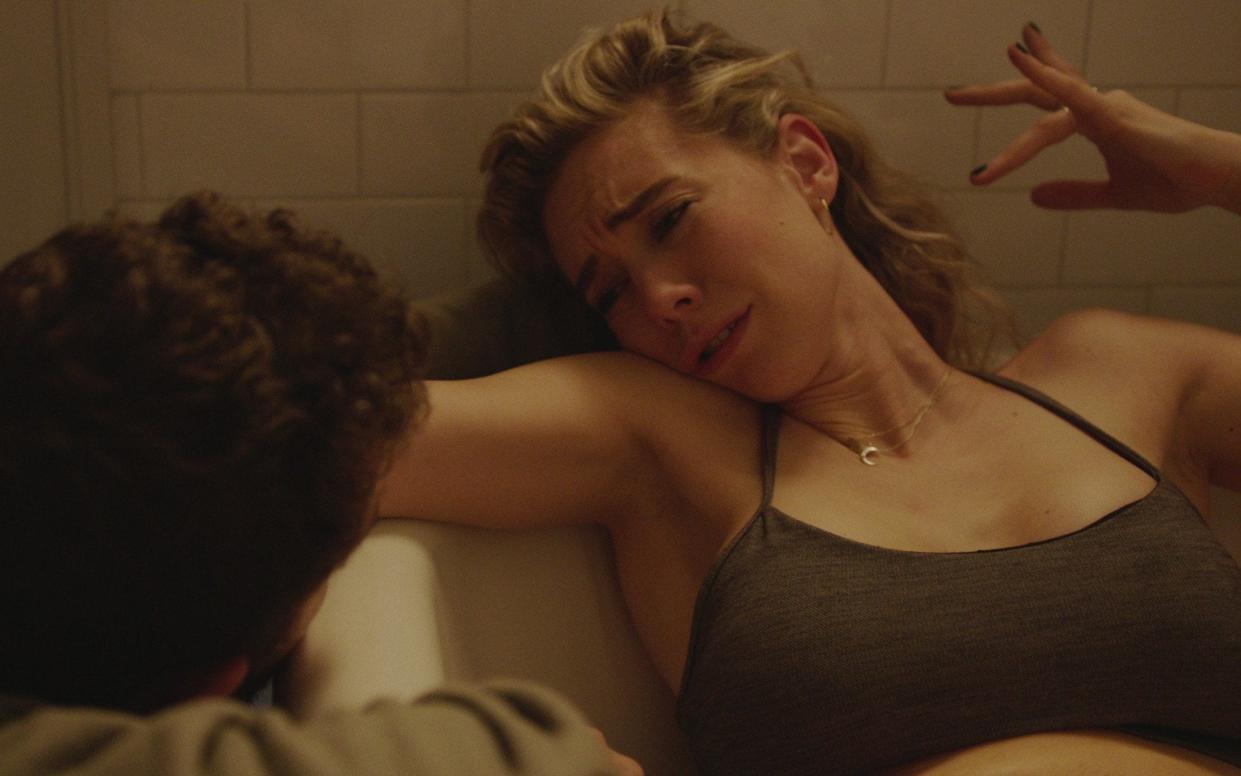Pieces of a Woman, review: Vanessa Kirby is devastating in this supremely frank stillbirth drama

15 cert, 122 min. Dir: Kornél Mundruczó; Starring: Vanessa Kirby, Shia LaBeouf, Ellen Burstyn, Molly Parker, Sarah Snook, Benny Safdie, Iliza Shlesinger
The loss of a baby is a tragedy inverted. It’s the only kind of death that involves coming to terms not with an absence, but with a negative presence: the child-sized space you prepared in the world that will now go unfilled. In Pieces of a Woman, a young American couple played by Vanessa Kirby and Shia LaBeouf find themselves having to adjust to this space in their lives after their daughter dies during a traumatic home birth.
The delivery sequence itself takes up the entire opening half-hour of this two-hour film, and largely unfolds in an extraordinarily immersive single take. It’s the kind of trick filmmaking where the trick itself disappears, leaving behind its almost subliminal effect – that even on the opposite side of the screen, you’re somehow right there alongside this expectant mother and father, Martha and Sean, experiencing the birth with them moment by moment as their anxiety turns into wonder, then panic, and finally devastation and disbelief. However unplanned these events may seem, fate, like the camera, is locked on to a predetermined course.
As you may have already surmised, Pieces of a Woman is not exactly the feel-good film of the festive break. But its supremely frank and unflinching treatment of its essentially taboo subject gives it a certain brandy-slug of consolatory warmth, despite the bitter chill that blows through most of its scenes. (It is set in Boston but was shot in Montreal – a suitably snowy but also obviously un-American backdrop which gives the drama the slightly heightened feel of a frostbitten fairy-tale.) It is also first English-language film by the Hungarian director Kornél Mundruczó and his regular screenwriter and partner Kata Wéber, whose Budapest-set canine fable White God was a buzzy art house release in 2015.
Pieces of a Woman will presumably give the couple their widest audience by far to date, not least because it was picked up by Netflix from this year’s Venice Film Festival, where Kirby was awarded the Volpi Cup for Best Actress. The Crown star will presumably – and deservedly – be a fixture in Oscar and Bafta conversations over the coming months.
But her performance here isn’t “awards-y” by modern standards at all, and has more in common with the forged-in-the-moment psychological intensity of Gena Rowlands’s legendary work with her husband John Cassavetes. Even the title Pieces of a Woman feels as if it might be nodding towards Rowlands and Cassavetes’s 1974 barnstormer A Woman Under the Influence.
On the face of things, Martha is under the influence of no one. She has a successful career, a solid long-term relationship with LaBeouf’s bushy-bearded, blue-collar Sean, and a degree of additional financial security thanks to her rich, elderly mother Elizabeth (Ellen Burstyn) – who may be succumbing to dementia but retains the steely first-generation-immigrant resolve on which her family’s wealth was obviously built. Yet the death of her newborn daughter causes all three of these pillars of her life to splinter and crack.
Wéber’s screenplay shrewdly sets out how a couple can respond to the same awful event in two extremely different ways – both of which seem reasonable enough in isolation but when set against each other become mutually destructive. But it’s equally sharp on the perilous pursuit of closure, as Martha’s mother pushes her daughter to press criminal charges against her midwife Eva (Molly Parker) – a mousy substitute who is drafted in to supervise the home birth at the last minute, and “must” therefore be the cause of all that ensues.

Parker plays this small but pivotal role superbly, making us mistrust Eva without ever quite giving us a valid reason to do so. (Her very effortful reassurances during the labour have the opposite of their intended effect.)
Meanwhile, Burstyn is a wintry force of nature. The 88-year-old actress gets a monologue in a late family gathering scene that’s by turns winding and electrifying, with an especially brutal line that you can tell her character has been turning over in her head for months. When she finally says it aloud, you can feel the air in the room shake with shock – but also relief.
Ultimately, though, this is entirely Kirby’s film, and the actress draws us surely but unforcedly inside Martha’s mental state, until we’re right in there with her, looking out at the world as if through misted glass. Her performance captures the blur of grief with such unerring accuracy, in fact, that Martha’s story’s extremely clear-cut conclusion feels jarring, as various metaphors (bridges, apple seeds) are tidied away one by one before an epilogue spells out a little too much for its own good.
It’s an incongruous ending to a film that’s otherwise impressively attuned to life’s capacity to smash our best-laid plans to smithereens.
In selected cinemas from New Year’s Day and on Netflix from January 7

 Yahoo News
Yahoo News 
